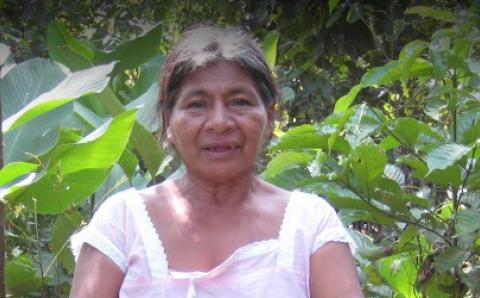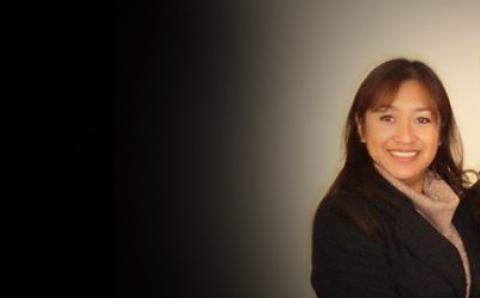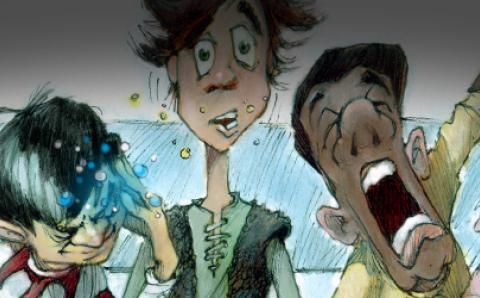Faces of Persecution
It’s not helpful to the situation in Nigeria to [suggest] that the actions of Boko Haram are at the root religious grievances or anti-Christian sentiment (“The Many Faces of Religious Persecution”). As in many parts of the world, religious motivations are only one aspect of the groups’ struggle, and mostly mask larger grievances over rampant corruption, the gross underdevelopment of the North of Nigeria, political disenfranchisement, and the heavy-handed crackdown of state security forces. BH was a peaceful movement until its leader and many followers were executed in police custody. The vast majority of victims of BH (including in the horrific attacks the article mentions) are Muslims, not Christians.
Local and international human rights groups see a danger of a backlash from a poor population that feels marginalized and remote from the political center of Nigeria and its Christian president, Goodluck Jonathan.
—Name withheld
Abuja, Nigeria
It Can Happen to Anyone
It was good to read H. David Schuringa’s article about children questioning our faith (“It Can Happen to Anyone”). We have three adult children, and all three do not attend church. We are very close to each other. It is hard to deal with the fact that we worked to bring them up in the church and then see them move their own ways. We have been praying about this lately. Thanks for the article.
—Edward Alblas
Grimsby, Ontario
New Lessons from Timothy
As a former student of Timothy Christian School and a current member of a CRC congregation that is intentional about racial reconciliation, I was disappointed by the recent recommendation that the moment has come “to stop citing that sad time in the school’s history” when racial tensions precipitated the school’s move (“New Lessons from Timothy”). It is certainly important to “see what can be learned from where Timothy is today,” but in a denomination and a world that is still hurting and deeply impacted by racial sins of the past and present, we must not sweep our challenging past under the rug.
—David Boven
Chicago, Ill.
As a K-12 alumna I remember the buses were turned around because of the riots (“New Lessons from Timothy”). In its own way, Timothy Christian School is really putting the Great Commission into action as more nationalities are learning God’s Word.
—Roberta Winters
Bay City, Mich.
BOT’s ‘Disappointment’
We read with collective shame the report of the Board of Trustees expressing their disappointment with the Banner editor (“Board of Trustees Expresses Disappointment”) and noting that now they are censoring what the editorial board can print. This is a major step in the wrong direction.
Based on what Scripture says, we should all be preaching, teaching, and writing about politics, sexuality, science, war, gun violence, the Belhar, the poor, and social injustice . . . areas in which the BOT could provide some positive encouragement.
—Paul and Mary Kortenhoven
Grand Rapids, Mich.
I am 69 years old and grew up in a CRC neighborhood. I was very grateful the BOT decided to keep our editor, as I feel that God and his Word guide Mr. De Moor’s choices for The Banner (“Board of Trustees Expresses Disappointment”). For those of us who raise grandchildren, he helps us see the temptations our children have to deal with and establish Bible-based beliefs. Promoting [these kinds of] conversations is important to us.
—Diane Strauss
Kentwood, Mich.
Censorship is always counterproductive (“Board of Trustees Expresses Disappointment”). What are people afraid of? Particularly in the Old Testament, believers brazenly question God’s trustworthiness, faithfulness, and motivation. None of that was expunged. Must The Banner be more holy than the Bible?
We need a publication that is vibrant, inspirational, and challenging, produced by Christian journalists and writers who are at arm’s length [from the denomination]. Cut the denominational apron strings and make it subscription-based!
—Nick Loenen
Richmond, British Columbia
It is with amazement that I read that the board is disappointed with Mr. De Moor (“Board of Trustees Expresses Disappointment”). I was very happy that finally some other views came in The Banner. Everybody knows that what writers write does not have to be the view of the editor or the board. What is the board so afraid of? This is a free country with people who know how to think and to believe. Give us a little bit of credit to know and think for ourselves!
—Geeske de Boer
Pitt Meadows, British Columbia
What are the trustees afraid of (“Board of Trustees Expresses Disappointment”)?
I’m afraid this will understandably make [the editor] “gun shy” of other issues that we need to address, such as capital punishment, war, nuclear radiation, and the occupation of Palestine. The term “justice” appears in the Bible more often than love, and though Christ often spoke of it, we have virtually kept it hidden. [These issues] are crying for help from the Christian community.
Churches were silent on major issues that needed Christ’s perspective, issues such as the drug trade, slavery, and Manifest Destiny. The issues are different now, but our response is similar.
—Jake Terpstra
Grand Rapids, Mich.
Reflecting on the article “Tomorrow’s Theology” and some reactions to that article as reported in the News (“Board of Trustees Expresses Disappointment,” Nov. 2013), I have a couple of comments:
1. The world we live in is God’s. He created it and he sustains it every moment.
2. Science is the study of God’s created world, his handiwork.
So we ought to follow the examples of John Calvin and Augustine by giving serious consideration to conclusions from the scientific study of God’s handwork, and not lightly dismiss or reject them.
—Clarence Menninga
Grand Rapids, Mich.









